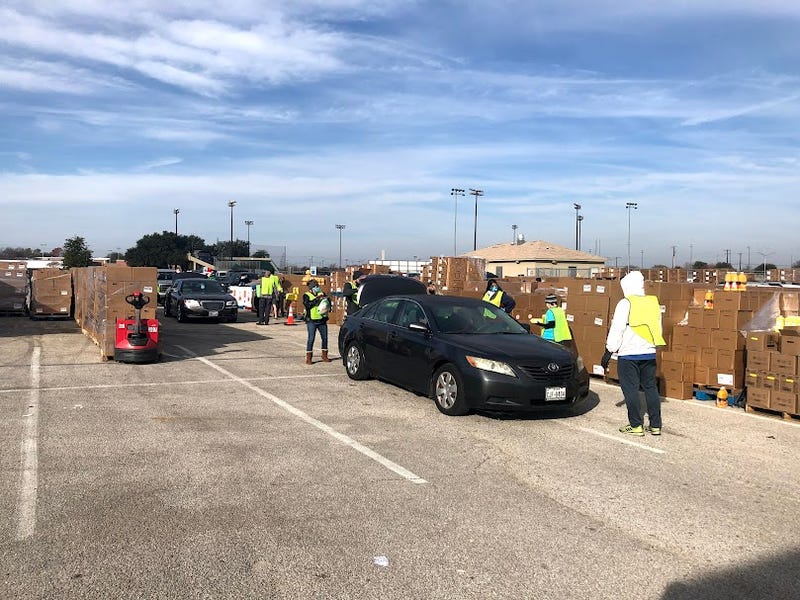
The U.S. Senate has passed the domestic policy measure known as the "Big, Beautiful Bill," and nonprofits in Texas are looking at the potential impact to their work. The bill passed out of the House Rules Committee Wednesday and now heads to the Floor.
The bill would cut Department of Agriculture funding by $186 billion over ten years. Most of the money would come from Supplemental Nutrition Assistance Program, known as SNAP and formerly food stamps.
"This basically takes a hatchet to the SNAP program and shifts billions of dollars in costs to Texas," says Feeding Texas Chief Executive Officer Celia Cole. "If it's enacted, the bill represents the largest rollback of food assistance in the history of our country."
Feeding Texas represents 20 food banks across the state. Cole says food banks can capitalize on relationships with companies for donations and buying food on a larger scale, but while food banks across the country give 700 million pounds of food a year, she says SNAP provides nine times as many meals.
"We won't be able to make up for a cut of this magnitude," she says. "If it causes hundreds of thousands of Texans to lose access to benefits, they will show up in our lines."
Feeding Texas says the bill would require seniors and parents to document they are working 20 hours a week. The organization says the bill would also remove exemptions for veterans, homeless people and former foster youth.
The bill would also cut funding for SNAP-ed, which aims to show people how to stretch their food budget while also preparing healthy meals. Feeding Texas says the measure would also limit updates to the formula used to calculate benefts, "making it harder for families to afford groceries."
Cole says SNAP provides only temporary help for people who may have lost their job, are dealing with unexpected expenses or have to clean up after a disaster. She says inflation has slowed, but prices have not come down, and the "vast majority" of people using the benefit are kids, seniors, veterans and people with disabilities.
"Texans want to work, but there's no shame in getting a hand up if you are down on your luck or have experienced a job loss," she says.
If the bill passes, Feeding Texas says the state would lose $716 million a year in benefits starting in 2028 and $89.5 million for administrative costs starting in 2026. Cole says the legislature would either have to increase taxes, use its surplus, divert money from other programs or cut benefits to balance its budget.
"We want everyone who's concerned about this to speak up," she says. "SNAP is going to reach half of Americans in their lifetimes, so this is something we all need to be concerned about. We encourage everyone to reach out to their elected representatives and make it clear that cutting food assistance to vulnerable people is unacceptable."
Before the measure passed the Senate, Texas Republican John Cornyn spoke on the floor, saying Democrats have offered "zero alternatives" to the Republican plan. He said the Welfare Reform Act of 1996 included time limits on welfare benefits and won bipartisan support, asking, "Why in the world should taxpayers subsidize somebody who's capable of working?"
"The reforms to Medicaid, an important healthcare safety net, and SNAP, previously known as food stamps, will strengthen and safeguard our safety net for those who actually need it," he said.
States administer SNAP benefits using federal money. The non-profit, Every Texan, says 3.5 million people in the state qualified for SNAP at some point last year, representing 11.4% of the population.
